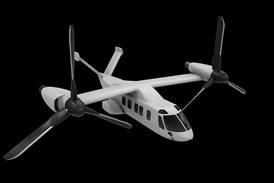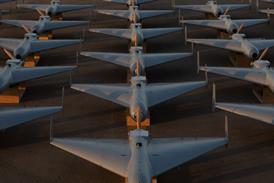Mitsubishi Aircraft says the need to relocate components in the MRJ regional jet's avionics bay and reroute electrical wiring harnesses are the main reasons for the pushback of the programme by two years.
In a conference call with reporters, vice-president and general manager of sales and marketing Yugo Fukuhara disclosed that the issue first surfaced last autumn, when the manufacturer was conducting a design review in Nagoya.
That review found that some components in the avionics bay would need to be relocated and wiring moved to meet certification requirements for continued operation in extreme situations. Examples include scenarios where there is an explosive device onboard or water leakage from the cabin into the avionics bay.
Fukuhara stressed that the necessary design changes will not affect the MRJ’s performance, fuel consumption or functionality of its systems. The Japanese manufacturer will however require an additional two years because the changes are required to undergo preliminary design work, where additional analysis and tests are required.
“We are conducting the preliminary design review for the design change area and will get into the critical design phase in a few months,” he says.
Mitsubishi announced on 23 January that the delivery of the first MRJ90 to launch customer All Nippon Airways will be pushed to mid-2020, two years later than planned. The aircraft is now targeting to obtain type certification in mid-2019.
Mitsubishi adds that the four flight test aircraft will continue with the ongoing flight test programme in their current configuration. The manufacturer will however also use additional aircraft with the design changes incorporated at a later date. Three flight test aircraft are in already Moses Lake, and a fourth is expected to make its ferry flight to the US “very soon”.
The airframer also has two to three production aircraft in final assembly, and admits that the latest delay will require some revision to its production rate.
Fukuhara says that Mitsubishi Heavy Industries (MHI) will be more directly involved in the MRJ's development going forward, and also emphasised that the Japanese conglomerate can absorb the additional costs that a fifth delay will bring.
“We are committed to this business for the long-term and MHI is one of the biggest companies in Japan and can afford this long-term investment,” he adds.
The firm would not say if its customer contracts stipulate penalties for delays, but stressed that it keeps in close communication with customers and that they understand the challenges, and support the programme. There will also be no cancellations, says Fukuhara.
“Building and certifying a new aircraft is a very complex process and include a lot of challenges. But this is a long-term business and we at Mitsubishi Aircraft and MHI are committed to the business. Our customers understand our challenges, appreciate MRJ values and support the MRJ,” he adds.
When the regional jet programme was launched in March 2008, the original target was for the first aircraft to enter service in the second half of 2013. The last time Mitsubishi announced a delay was in December 2015, pushing back delivery of the first aircraft by a year to mid-2018.
Mitsubishi has commitments for 427 aircraft, comprised of 233 firm orders, 170 options and 24 purchase rights.
Source: Cirium Dashboard























